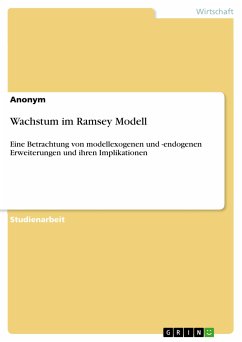Seminar paper from the year 2008 in the subject Economics - Micro-economics, grade: 2,3, University of Münster, language: English, abstract: The central concept of microeconomic theory is straightforward: Firms set price and quantity due to profit maximizing purposes. As profit is defined as revenue less cost, this optimization process is based on a production function and a cost function. For relevant inputs to the production function, companies face the decision to substitute domestic labor with either capital or foreign labor – provided a given output – whereas costs are deduced from the inputs . This substitution process represents the impacts triggered by technological progress and trade. In the last few decades, computerization (as the dominant part of technical progress) as well as offshoring (of trade) have caused intensive debates in Northern countries. The public is concerned that these two phenomena might be a threat that functions at the expense of domestic labor. It is therefore to be analyzed if these worries are appropriate; that is, which jobs are at stake and which have future perspectives in terms of existence. This is going to be scrutinized by applying an analytical framework. Within this framework the questions of legality, feasibility and rationality are examined in systematical ordering. Furthermore, as recent literature suggests neither a sectoral- nor an indus-trial- or occupational-based analysis, but rather one on a task-level basis , this task-based approach is used in the framework and necessitates a re-assignment from tasks to jobs.









